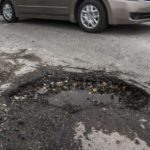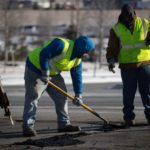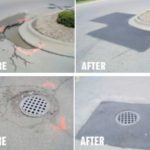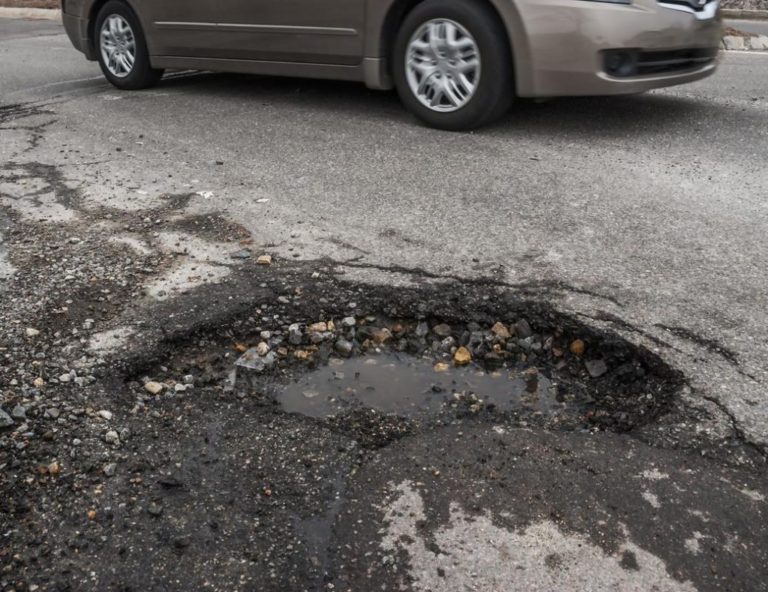Know About Pothole Repairs: Potholes are always an unwelcome surprise when they appear on your daily commute, but they can be particularly dangerous if you are unlucky enough to hit one while driving. Fortunately, potholes on your property are not too difficult to repair once the necessary steps have been taken; however, there are a few questions that you should ask yourself before making any decisions about how to handle the situation.
Here are some of the most important pothole repairs FAQs and what you should know about them
What Causes and need for Pothole Repairs?
 Potholes are generally caused by water seeping into the cracks in asphalt. When the water freezes, it expands and creates a larger crack. Over time, the crack gets bigger and eventually becomes a pothole. Potholes can also be caused by cars driving over the same spot repeatedly. The car’s weight compresses the asphalt and causes it to break down.
Potholes are generally caused by water seeping into the cracks in asphalt. When the water freezes, it expands and creates a larger crack. Over time, the crack gets bigger and eventually becomes a pothole. Potholes can also be caused by cars driving over the same spot repeatedly. The car’s weight compresses the asphalt and causes it to break down.
Do Potholes Damage Cars?
It is common to hear the sound of your car hitting a pothole and wonder, “Do potholes damage cars?” The answer is: unfortunately, yes. Potholes can cause significant damage to your vehicle, including bent rims, blown tires, broken suspension components, and alignment issues. In extreme cases, potholes can even cause structural damage to your vehicle.
How are Potholes Repaired?
 Potholes are most commonly repaired by either patching or milling. Patching is the process of filling the pothole with hot asphalt mix, which is then compacted. Milling is the process of removing the damaged pavement and replacing it with new pavement. There are also some newer methods of pothole repairs, such as infrared patching and ultrathin overlay, but these are not as common.
Potholes are most commonly repaired by either patching or milling. Patching is the process of filling the pothole with hot asphalt mix, which is then compacted. Milling is the process of removing the damaged pavement and replacing it with new pavement. There are also some newer methods of pothole repairs, such as infrared patching and ultrathin overlay, but these are not as common.
There are also a few do-it-yourself methods, but these are not recommended as they often do not last as long as professional repairs. If you have a pothole, it is best to call a professional to have it repaired as soon as possible.
Can Pothole Repairs work in the Winter?
Yes, potholes can be repaired in the winter! However, the repair process is a bit different than it is in the warmer months. The first step is to clean out the pothole of any debris. Next, fill the pothole with cold patch material. Once the cold patch material has been set, you can fill the pothole with hot asphalt. Finally, compact the asphalt to finish the repair.
Do I Need Pothole Repairs?
 Although potholes can be unsightly, they are not always a sign that your property needs repairs. Sometimes, potholes can form due to environmental factors such as freeze-thaw cycles or erosion. If the potholes are small and few in number, you may be able to repair them yourself with some elbow grease and a little bit of asphalt patching material. However, if the potholes are large or numerous, it is best to call in a professional asphalt contractor to make the repairs.
Although potholes can be unsightly, they are not always a sign that your property needs repairs. Sometimes, potholes can form due to environmental factors such as freeze-thaw cycles or erosion. If the potholes are small and few in number, you may be able to repair them yourself with some elbow grease and a little bit of asphalt patching material. However, if the potholes are large or numerous, it is best to call in a professional asphalt contractor to make the repairs.
What are the Best Ways to Prevent Potholes?
You can do a few things to prevent potholes from forming in the first place. A few key methods for pothole prevention include:
- Regular maintenance (inspections, crack sealing, etc.),
- Appropriate materials (hot mix asphalt is best),
- Proper drainage.
Of course, potholes can still form even with these measures in place — but they will be fewer and smaller.
Conclusion
If you live in an area that experiences heavy winter weather, you are probably familiar with potholes. These are unsafe and unpleasant pits on the road that get bigger during freezing winters and spring thaws, and they are common after periods of heavy rain as well. Potholes can cause damage to your car if you hit one at the wrong angle, so it is important to know how pothole repairs work when you need to have them fixed or filled in.
Contact now for Pothole Repairs and other asphalt services
Address
Commonwealth Paving, 136 Outerloop, Louisville, Kentucky 40214
Phone: 502-459-7283, Fax: 502-456-2678
Opening Hours
| Monday | 9:00 AM – 5:00 PM |
| Tuesday | 9:00 AM – 5:00 PM |
| Wednesday | 9:00 AM – 5:00 PM |
| Thursday | 9:00 AM – 5:00 PM |
| Friday | 9:00 AM – 5:00 PM |
| Saturday | Closed |
| Sunday | Closed |







